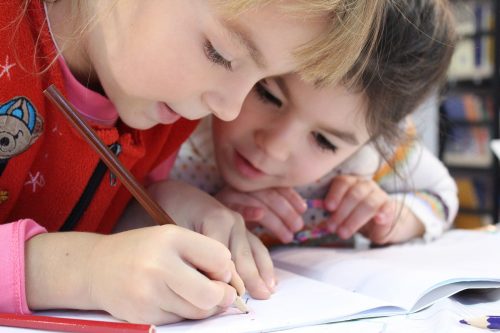
Source: pixabay.com
We may have a child who has a high IQ, or those who excel in arts and music. Your child may be a gifted speaker, a storyteller, a singer, a dancer, or an artist. As parents, we become so proud to have a child that is like that, one who is talented and skilled.
But some cannot function properly due to neurodevelopmental disorders or is a bit weird because of a behavioral issue. While we don’t want this for our child, in some stroke of luck, God will want you to have a child with special needs. You have a child who has Autism Spectrum Disorder (neurodevelopmental disorder), Conduct Disorder (behavioral issue), or Dyslexia (learning disability). Let God’s will be done, and we accept that our child needs more of our love, patience, and attention.
With that, remember these things when managing your child with deficiencies.
All children are unique. They have their own and individual identity. With this being said, they have a different set of capabilities and flaws. Some excel in specific skills, while others have a lesser ability to do so.
Avoid comparisons because every child has their own pace even those who have learning disabilities. When you compare your child to someone, they will feel humiliation and will downgrade their confidence.

Source: pixabay.com
No matter how small or big the tasks are, parents need to acknowledge their child’s works and appreciate the process rather than the outcome. Erin Leyba LCSW, Ph.D. suggests, “If your child is having trouble doing the tasks needed to get out the door, put him in charge.”
Plan and schedule their time wisely with study, play, and rest periods. Children with these conditions require a longer amount of time to learn and a bucketful of patience. During academic periods, don’t disregard the importance of ample rest to recharge and recollect themselves.
Squeeze in complicated tasks with their preferred jobs. After you have identified what the things they usually enjoy doing are, it is an excellent strategy to mix in between some challenging assignments, so they will be looking forward to ending their assignments with the tasks they like.
Parents need to assess and interrogate first before offering assistance because sometimes children with learning disabilities also want to learn on their own.
Set an example for them that it is just natural to make mistakes. You can intentionally demonstrate a simple mistake, then verbalize that there’s nothing wrong with it. It will affirm this concept that you are trying to impart them. “Making mistakes is part of how kids are challenged to learn to do things differently. It motivates them to try new approaches,” Marilyn Price-Mitchell Ph.D. points out.
There will be a lot of times that they will feel upsetting emotions and frustrations. During these circumstances, they will express anger bursts. Help them to learn that while it is fine to feel that way, they need to manifest these feelings in a non-destructive way. “Parental warmth and control, in a positive way, are the two most important parental attributes that help to create positive effects,” Neil Farber M.D, Ph.D., CLC, CPT emphasized.

Source: pixabay.com
Discover the things that spark their interest may it be a hobby, a particular sport, music and find ways to relate it to their schooling. Like for example, if they like music, you can include them in some extra-curricular music classes or ask to join the choir. These activities will trigger happiness to them and make them excited to go to school.
Inculcate into their mind a person that can be a source of inspiration. The person needs not to be very influential. He or she should be a person that the child can relate to. It will boost their morale and will harbor feelings of determination.